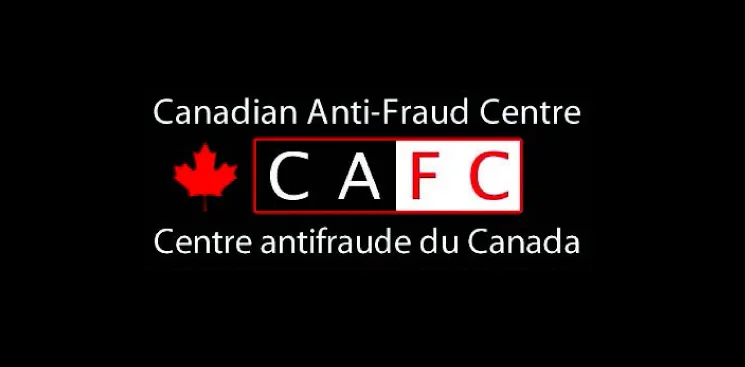
How much has counterfeiting fraud declined in Canada since the introduction of chip card technology?
You misplaced your wallet. You left your credit card in the bank machine. An online scammer duped you into giving them your credit card information. With each of these stressful life events, there are steps you can take to protect yourself. Learn what to do if your credit card is lost or stolen.
What you should know
If someone runs up charges on your lost or stolen credit card, you may be on the hook for some of it. Luckily, the law in BC limits the damage. Once you report a missing card to your credit card issuer, you don’t have to pay for anything bought with your card after you told them.
If someone uses the card before you report it as missing, the maximum amount you’re legally liable for is $50. (There is one exception to this rule: where your credit card is used at an automated teller machine with your personal identification number, the $50 cap on your liability does not apply. See below for more on this exception.)
You can report the missing card to your issuer by phone or by mail. Most major banks and credit unions have a dedicated number you can call to report a lost or stolen credit card.
Ask your bank if they'll waive the charge
If someone steals your credit card and buys something before you notice and report the theft, the most you’ll be legally on the hook for is $50. Ask your credit card issuer if they’ll waive even that $50 minimum. Many will say yes. For them, it’s good customer relations!
Under BC law, a credit card issuer must tell you your maximum liability for unauthorized use of your credit card if it’s lost or stolen. This information must be set out in the contract (called the cardholder agreement). Usually, the details will be displayed in an information box at the beginning of the agreement. See our guidance on getting a credit card.
Even if your cardholder agreement sets your maximum liability at a higher figure, the law limits your liability to $50. If someone goes on a shopping spree with your lost or stolen credit card, the law says your maximum liability is $50. You’ll never have to pay more than that (except in one circumstance, explained in the next section).
There’s one exception to the rule limiting your liability to $50 for authorized use of a lost or stolen credit card. The law limiting your liability doesn’t cover situations where your credit card is used at an automated teller machine (ATM) with your personal identification number (PIN).
So, say you lend your credit card to a friend. She visits a nearby ATM. Without your permission (but using the PIN number you gave her), she withdraws $500 as a cash advance from your credit card account. In this case, you are responsible for the entire $500.
Although it may seem convenient, giving away or sharing your PIN is never a good idea. Take care to protect your PIN when you use your credit card in public (and avoid using a PIN that’s easy to guess, such as your birthdate).
Ask for a credit card with chip technology
Ask your credit card issuer about chip technology and contactless payment. Credit cards with these features are generally more secure than cards that use a magnetic stripe.
Work out the problem
Contact the credit card issuer as soon as possible if:
you notice unusual activity on your credit card account
you suspect someone may have gotten ahold of your credit card information
you lose your credit card
You aren’t liable for any charges made to the account after you report the loss to the issuer. See “What you should know,” above.
If you deal with a major bank or credit union, visit their website and check if they have a number to call to report lost or stolen cards. In most cases, the issuer will cancel the lost or stolen card and send you a new one free of charge.
If your credit card has been stolen, it’s a good idea to file a report with the police. Getting the authorities involved may lead to charges being laid against the thief.
Contact the credit reporting agencies to let them know about the lost or stolen card. The two credit reporting agencies in Canada are Equifax and TransUnion.
Discuss with them whether to have a “fraud alert” placed on your file. A fraud alert means that businesses or banks will call you before opening any new accounts or changing your existing accounts.
If someone has already run up charges on the card, consider adding an explanation to your credit report. That way, anyone who looks at your credit report will know that those purchases aren’t yours. See our guidance on fixing a mistake on your credit report.
Keep detailed records
Keep records of your contact with the credit card issuer, the police and the credit reporting agencies. It’s a good idea to make notes of who you spoke with, when you spoke with them, and the context of the conversation (for example, how long it’s been since you noticed the card was missing).
Destroy any other cards or cheques connected to the account of the missing credit card. If you had online access to the credit card account, cancel the access. If you used the credit card for automatic billing with any service providers, notify the providers.
If you think someone may have stolen your credit card information through a scam, contact the Canadian Anti-Fraud Centre. The Centre collects information about fraud and identity theft in Canada. They don’t conduct investigations but they do help law enforcement agencies by identifying connections among seemingly unrelated cases. If you report the scam, it may prevent others from being ripped off by the scam operator.
Also consider reporting the scam to the Better Business Bureau Scam Tracker. Reporting the scam helps the BBB investigate and warn others about the scam.
Common questions
It’s a good idea to compare your monthly statements of account to your credit card receipts. (It’s important to keep your purchase receipts to make this comparison.) If you don’t recognize a transaction on your statement, contact the business that’s charging you. If the business is unable or refuses to help you, contact the credit card issuer to dispute the charge.
Once you’ve checked your receipts against your credit card statements, shred the statements before throwing them away. That way no one will be able to get your account number by digging through your trash or recycling.
Contact your credit card issuer right away. If the account hasn’t been cancelled yet, you may be able to continue using the card. Your issuer will be able to advise you.
If the account has already been cancelled, destroy the old card by cutting it up. (Tempting though it may be to use it as a car windshield scraper.) Throw away the bits in different places so no one will be able to piece together the card number. If it’s a chip card, make sure you destroy the chip (cut it up into pieces).
Generally, your liability for a lost or stolen credit card is limited to $50. However, there is an exception where your credit card is used at an automatic teller machine (ATM) with your personal identification number (PIN). (See the “What you should know” section above.)
So let’s say you give your credit card and PIN to a friend to buy something for you at the store. Later, without your consent, that person uses your credit card and PIN to get cash advances from an ATM. You’re responsible for this debt. Moral: Do not share your credit card and PIN unless you are prepared to take on the debt.
Bank and debit cards aren’t covered by the BC law that limits credit card liability. So you’re not protected by the $50 limit on liability if someone steals your bank or debit card and PIN and uses them to get money from — or charge purchases to — your account.
Check your card agreement with your bank to make sure you know your responsibilities. For more information on unauthorized debit transactions, check the Financial Consumer Agency of Canada’s website.
Who can help

Canadian Anti-Fraud Centre
If you think someone may have stolen your credit card info through a scam.

